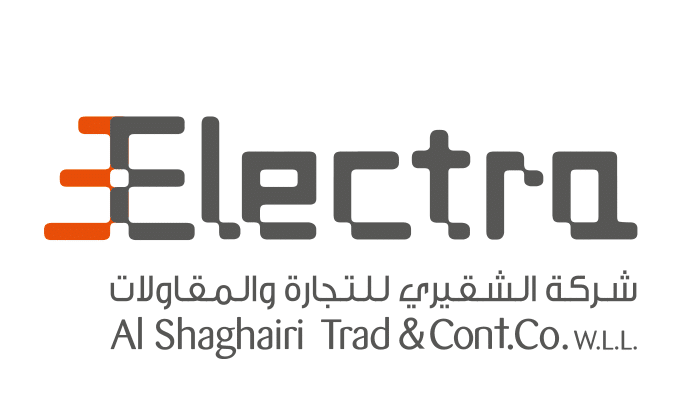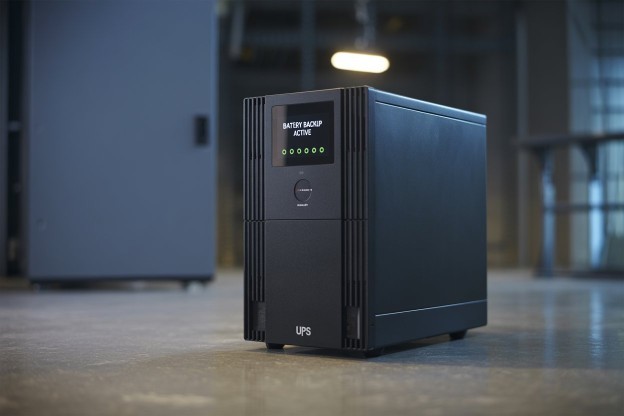Power cuts can cause serious setbacks for your business. A single outage can damage hardware, compromise customer data, and halt operations for hours. In a fast-paced economy like Qatar, most businesses heavily rely on digital infrastructure. Hence, a sturdy uninterruptible power supply (UPS) isn't a luxury; it's a necessity.
With a wide range of UPS solutions available, selecting the right one can feel overwhelming. This quick guide simplifies the choices, helping you identify the best system tailored to your business requirements.
What is a UPS System?
A UPS, or uninterruptible power supply, is a backup power solution that activates instantly when a power outage occurs, often before any disruption is noticeable. Unlike generators that take time to power up, a UPS ensures seamless transitions to backup energy.
Beyond backup power, UPS systems also regulate voltage, protecting sensitive equipment from spikes, drops, and electrical interference. They ensure a steady, clean power supply to critical devices like servers, medical equipment, and industrial controls.
- Offline/Standby UPS – This is the entry-level model, which only works in the event of a power cut. It is appropriate to be used at individual workstations or in home offices.
- Line-interactive UPS – This type offers better voltage regulation and adapts automatically to changes in power. Ideal for small offices, network hardware, and point-of-sale systems.
- Online UPS (Double Conversion) – This is the highest protection, and it also provides a continuous power supply through an inverter and thus isolates all the devices against the fluctuations in the main supply. It is mission-critical systems and data centres, as well as hospitals, that are better.
Essential Features of UPS Systems
Understanding UPS specifications is essential for making an informed decision. Here are the key features to consider:
Reviewing UPS specifications is important—but interpreting them correctly is what truly ensures you choose the right solution. Below are the core features to evaluate while making your decision:
- Power Capacity (kVA/kW): This rating indicates the maximum load the UPS can support. Selecting a model with a slightly higher capacity than your current needs provides flexibility for future growth.
- Runtime (Backup Duration): This refers to how long the UPS can keep your systems running during a power outage. Depending on your business operations, you may need just a few minutes for safe shutdown or extended uptime until a generator kicks in.
- Scalability: Businesses evolve, and so should your UPS. Modular units allow additional battery packs to be added as your power demands increase, ensuring continued protection without full system replacement.
- Battery Type and Lifecycle: High-quality batteries like lithium-ion or premium VRLA types have longer lifespans and require less frequent maintenance, making them a cost-effective investment in the long run.
- Form Factor: Whether rack-mounted, tower-based, or hybrid, the physical design of your UPS should align with the available space and infrastructure layout in your facility.
- Monitoring and Alerts: Advanced UPS systems come equipped with intelligent monitoring features, offering real-time insights into performance, battery health, load capacity, and even environmental metrics via SNMP or mobile platforms.
- Bypass Capability: A built-in maintenance bypass allows technicians to service or replace the UPS without disrupting the connected equipment, reducing downtime and maintaining operational continuity.
- Surge and Noise Protection: Effective UPS models include surge suppression and filtering capabilities to shield sensitive devices from voltage spikes and electromagnetic or radio frequency interference.
The Role of UPS Systems in Business
As the business environment of Qatar is fast changing, reliable UPS system is an important tool that can maintain uninterrupted operations in any industry.
- Business Continuity
A UPS keeps operational flow occurring in case of grid failures, permitting systems to perform till the generators engage or activities are safely shut down.
- Data Protection
Banking and information technology are key areas in which the UPS systems can be highly useful, as they help to protect against data corruption caused by the sudden loss of power.
- Equipment Longevity
Stable power will ensure minimal wear and tear on the electronic equipment parts, further cutting the cost of maintenance and replacement.
- Compliance and Safety
Industries with strict safety regulations use UPS systems to achieve regulatory compliance and safe environments for employees and clients.
- Customer Trust
Continuous service delivery fosters a level of confidence in customers, whether in the hospitality, medical, or retail industries.
How to Choose Uninterruptible Power Supply Systems?
In Qatar, UPS is the safety net your company never sees until it slips. Here are the everyday reasons it matters.
- Conduct a Power Audit
Grab a notepad and jot down every device that must keep running, from cash registers to small servers. Add up their wattage, then pump in another 20 to 25% just in case you grow or add equipment.
- Define Your Runtime Needs
Ask yourself how long you can sit in the dark before panic sets in. If ten minutes is enough, you're in one price bracket; if you want two hours, hunt for units that play nice with extra batteries or a generator.
- Evaluate Business-Critical Applications
Circle the gear you cannot lose under any circumstance: the surgical scanner at a clinic, the payroll server at a factory, or the credit card reader at the corner shop. Everything else can come later.
- Match UPS Topology with Usage
- Offline UPS: Perfect for spare home-office printers and non-critical laptops.
- Line-Interactive UPS: Suitable for small offices, retail, and network closets.
- Online UPS: Best for hospitals, banks, data centres, and manufacturing facilities.
- Consider Environmental Factors
Qatar is hot and often sandy. Pick a UPS that has built-in cooling, keeps out dust, and withstands high humidity if the unit will sit outside or in an open warehouse.
- Account for Redundancy
In places where power outages can stop the show, an N+1 setup adds one spare UPS for insurance. If the main unit fails, the extra module jumps in without a hitch.
- Look for Local Support and Service
Buying a UPS is not a quick flip; it's a long-term promise to your gear. Choose a supplier that can handle installation, routine check-ups, warranty claims, and 24/7 troubleshooting.
Conclusion
Choosing the right UPS system is a strategic investment that protects your business from operational risks, data losses, and equipment damage. Whether you run a small retail shop, a high-tech data centre, or a large manufacturing unit in Qatar, a customized UPS solution ensures that your business remains powered, protected, and productive—no matter the circumstances.
For businesses in Qatar seeking a dependable power backup partner, Electra offers comprehensive UPS solutions. With proven expertise and a portfolio of reliable Norden UPS systems, Electra provides end-to-end services—from consultation and supply to professional installation and ongoing maintenance.






